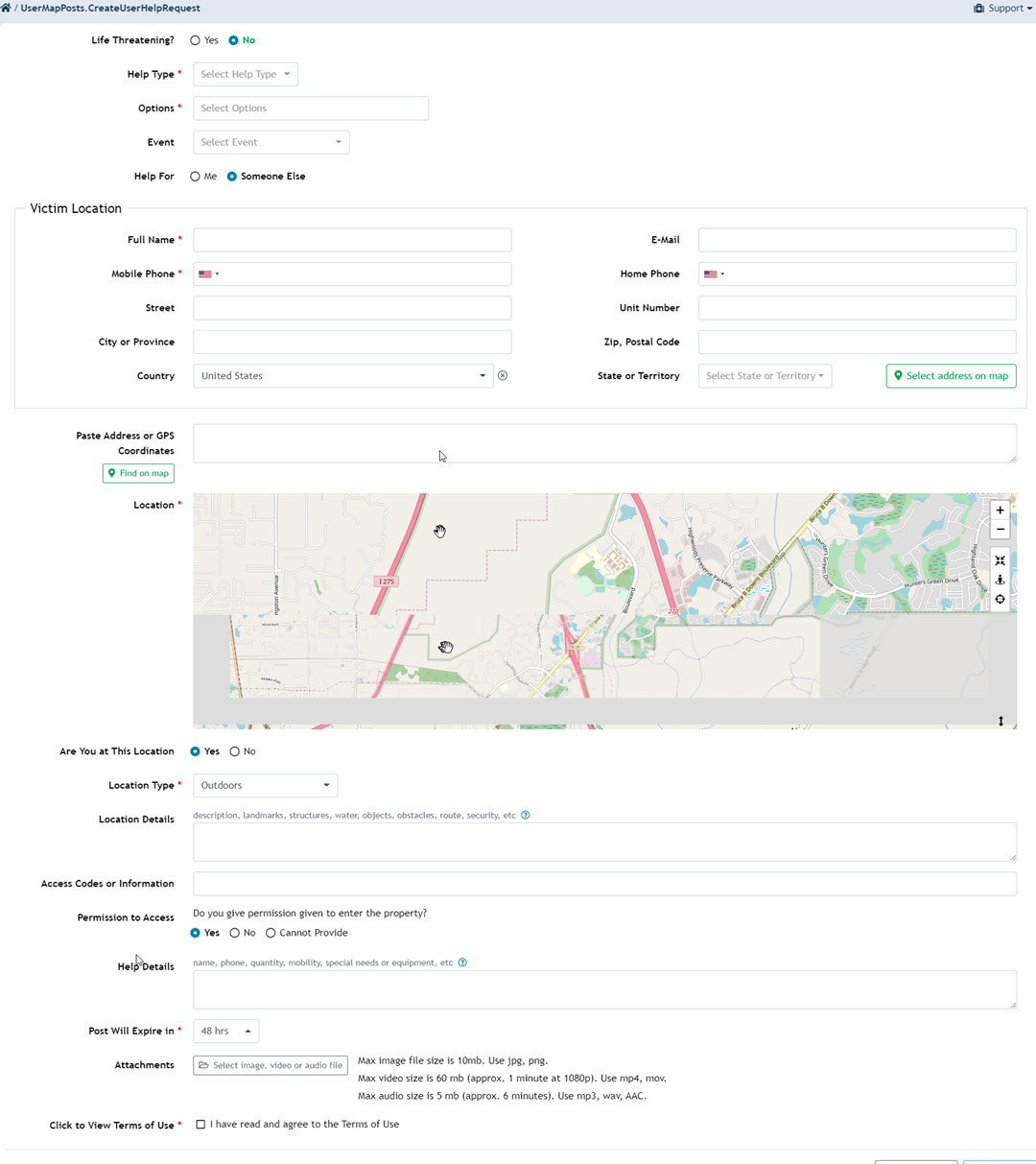Work Order Queue
PubSafe is unique in its ability to coordinate help and emergency requests across multiple NGOs and organizations from many different sources such as mobile apps, websites, social media, and call-ins.
Mission of PubSafe
The mission of the PubSafe platform is to save lives and reduce the suffering of people and animals. All portal functionality is designed to this end. All users and organizations utilizing the PubSafe platform should share this overriding belief. Sometimes this means taking actions that are for the greater good. PubSafe's goal is to eliminate challenges encountered in previous disasters, like those referenced in a comment from a government official after Hurricane Michael, "we had a thousand help requests we could not get to". PubSafe provides the tools to ensure help requests receive a response after a disaster.
Importance of Time Management
PubSafe can cross-coordinate between multiple organizations in real-time through the use of time management tools. Assistance requests are extremely time-sensitive. The longer it takes for help to arrive, the greater the loss of people, animals, and property. Therefore, the most important part of a collective response is to send the nearest qualified responder regardless of the organization that receives the request. Qualified may mean formal training, or the best available at the time. It may mean providing a general helping hand until a more qualified responder or additional resources arrive. Good Samaritan Act was intended to facilitate people helping people, to the best of their abilities.
Sources of Routine and Priority Requests
PubSafe facilitates gathering assistance requests from multiple sources so they can be managed through a single online portal. Requests can be made through PubSafe's mobile app, direct entry into the portal, or through third-party sources such as NGOs. Organizations are provided with a unique online help request form specific to their organization. Each form URL is specific to an organization so any requests received are routed to the organization's queue. Requests received through PubSafe sources are routed to PubSafe's queue where all NGOs can view and assign them.
Definitions
- Dwell Time - the length of time an assistance request remains in an organization queue without being assigned. Dwell time is a key metric used to determine dispatching efficiency and overall NGO impact.
- Good Samaritan Act: Good Samaritan laws offer legal protection to people who give reasonable assistance to those whom they believe to be injured, ill, in peril, or otherwise incapacitated. The protection is intended to reduce bystanders' hesitation to assist for fear of being sued or prosecuted for unintentioned injury or wrongful death. An example in common-law areas of Canada: a good Samaritan doctrine is a legal principle that prevents a rescuer who voluntarily helps a victim in distress from being sued for wrongdoing. Its purpose is to encourage rendering assistance to strangers in need. Consult with the general counsel to understand the risks.
- Queue - List of active help or requests for assistance
- Status - PubSafe offers the option of qualifying work orders. Some organizations want to inspect a help request before scheduling follow on services. The status filter enables a WO to be assigned to an Inspector who visits and evaluates the request and marks it qualified or unqualified. The dispatcher uses this information to make appropriate decisions. If this step is not needed, it is simply not updated.
- Inspector - a Responder designated to qualify help requests. This is an optional role and step.
PubSafe queues are available to all organizations to assist with the management of help requests. Requests received through the PubSafe mobile app, website, social media, or otherwise, are available to all organizations that use the PubSafe portal. Citizens and other responders can see these help requests on the PubSafe map. Once a work order is assigned and accepted by an organization, the work order cannot be assigned to another responder until the status is changed to Work Order Incomplete. Dispatchers work with responders to ensure work order statuses' are current and unsuccessful work orders are released back into the queue so they can be tasked to a different responder or partner organization.
Requests that exceed dwell time may be automatically moved to the PubSafe queue. This allows requests to be assigned to other responders available through other organizations. If a request is assigned from the PubSafe queue by an organization, the organization has 10 minutes of dwell time to assign it to an available responder for a priority request and 60 minutes for a routine request. If it is not accepted by a Work Order Ready Responder, it is returned to the queue for reassignment. The dwell time may be changed by PubSafe at any time without notice based on the situation.
The amount of dwell time varies based on several factors. Factors include the size of the backlog for all organizations, government feedback, the scale of the disaster, average response times, and as well as other variables. PubSafe may update dwell time as needed throughout an event to optimize the response times.

